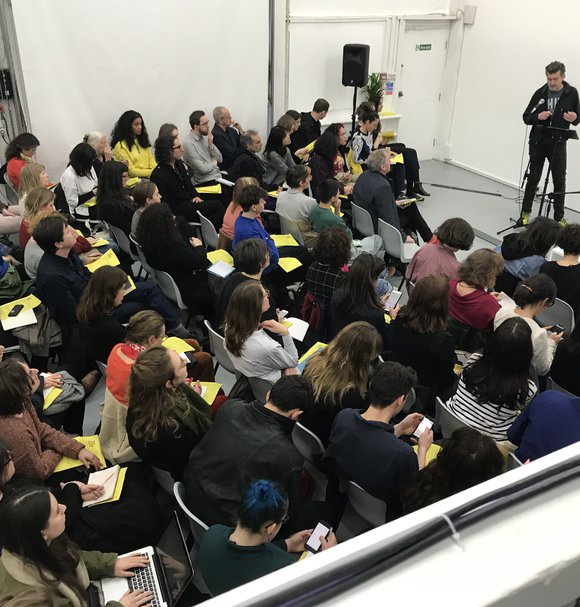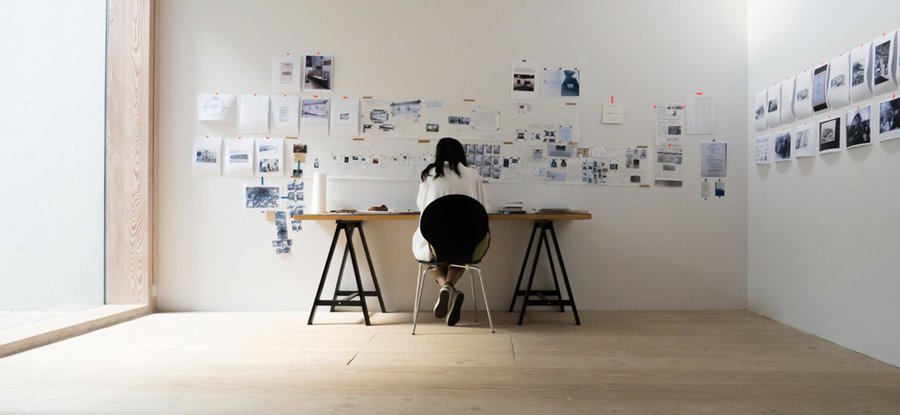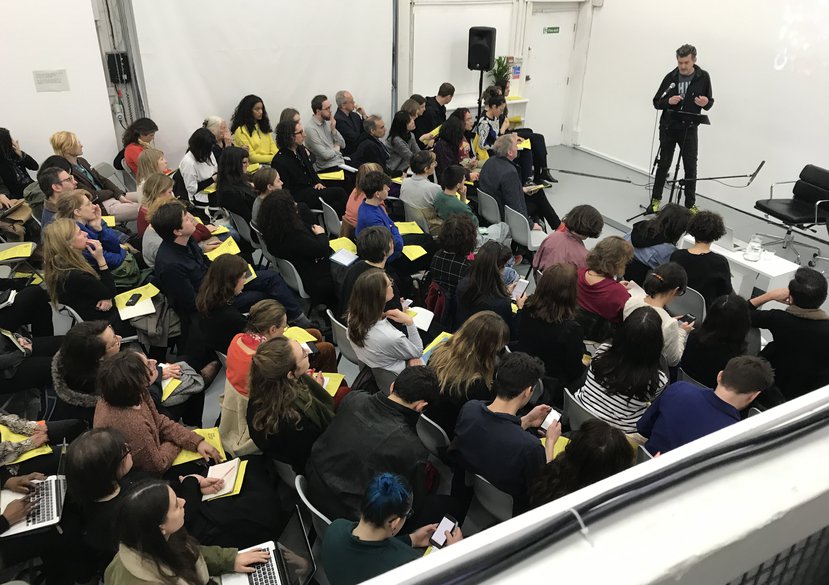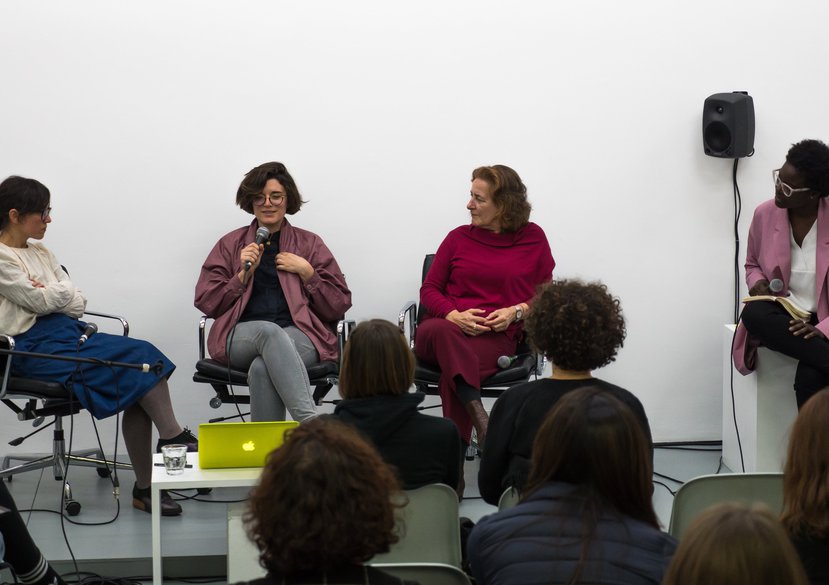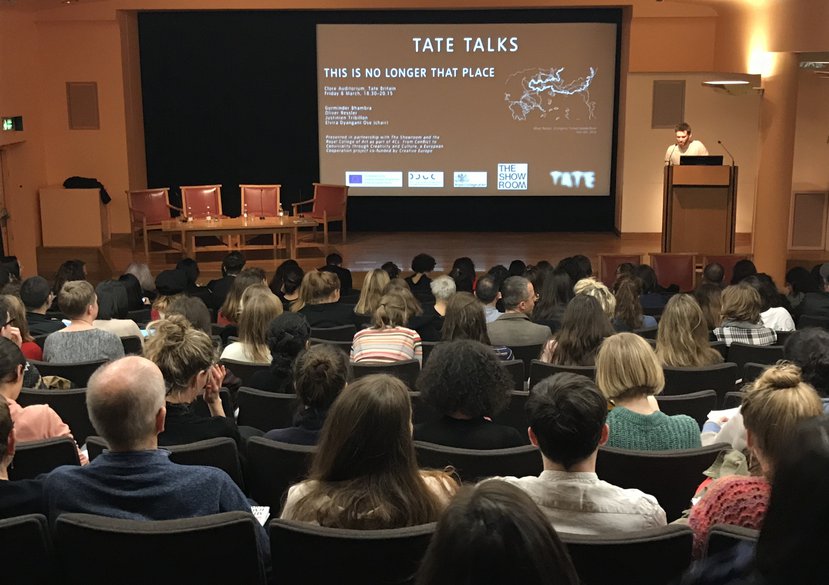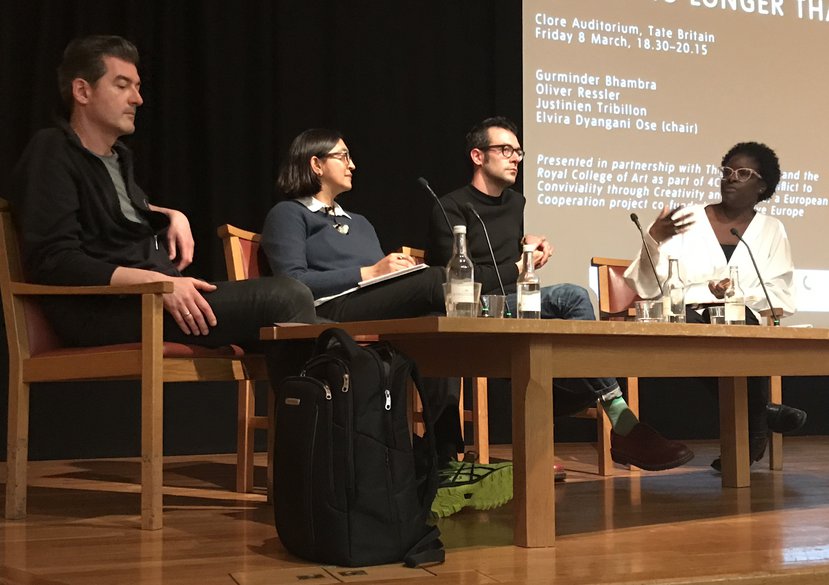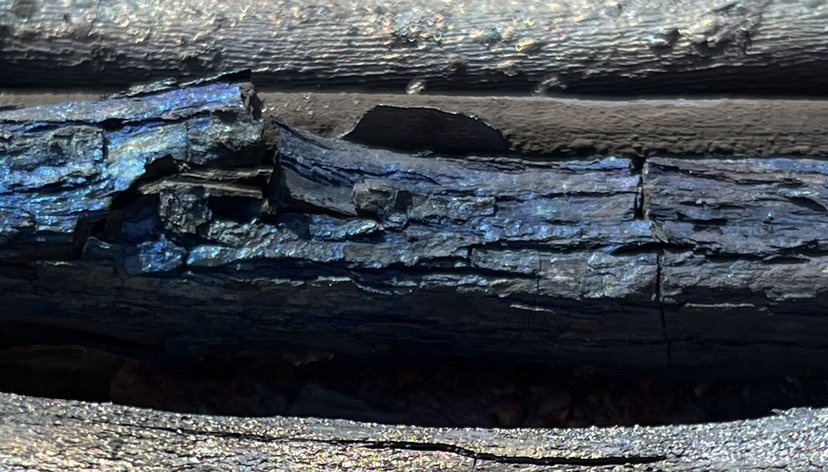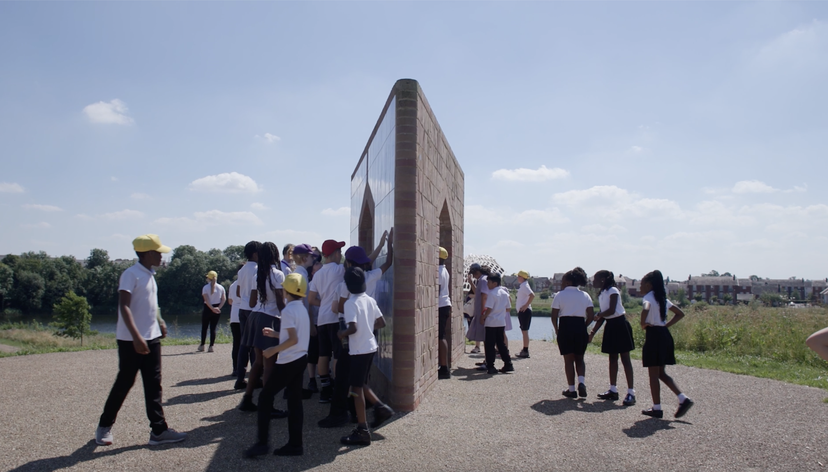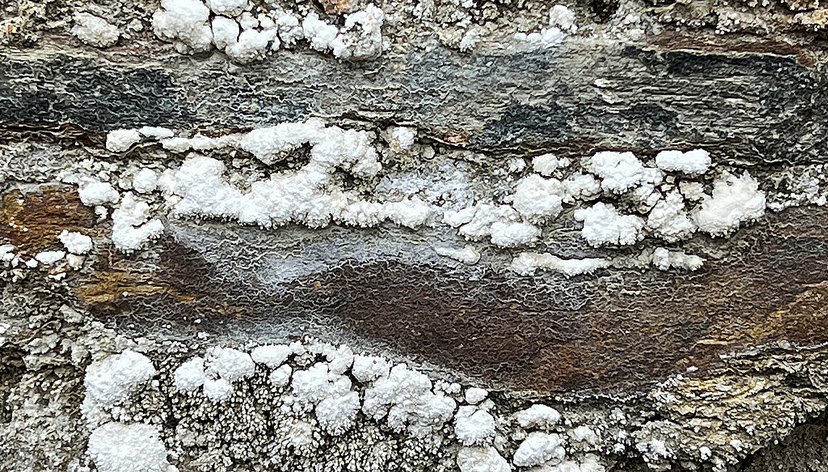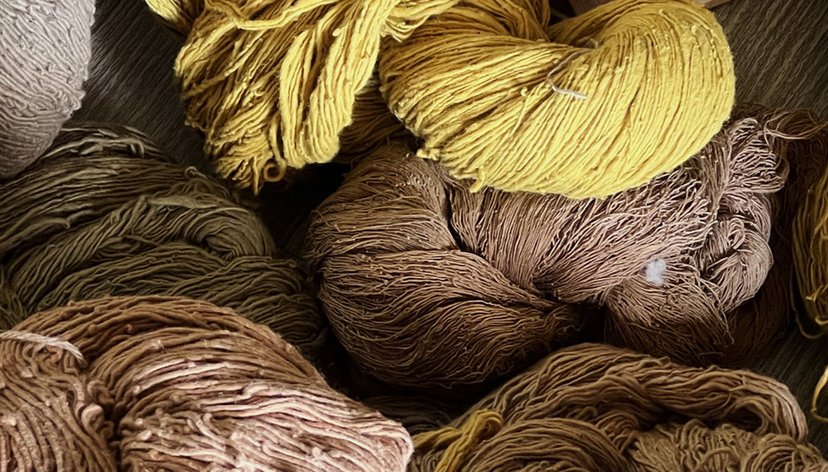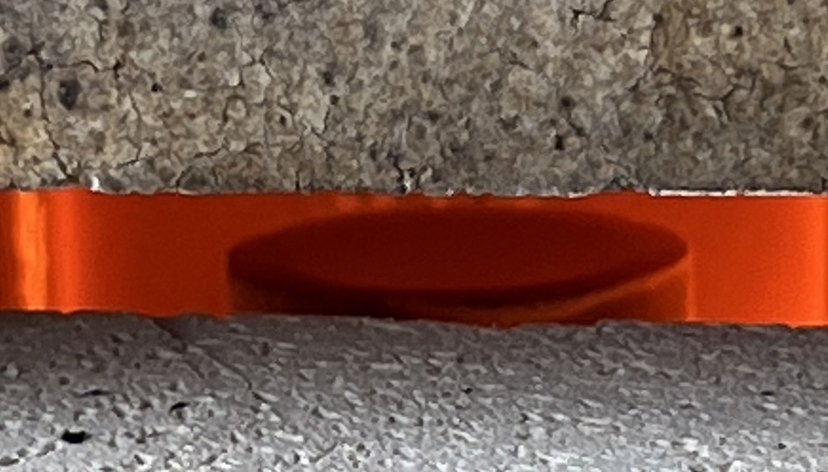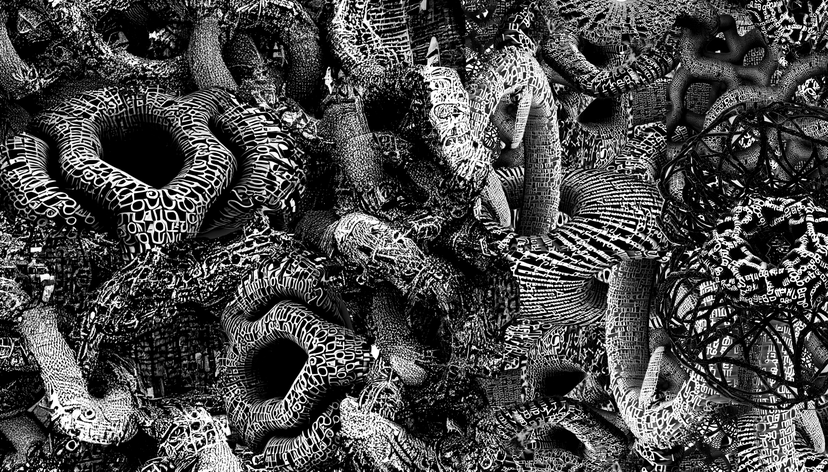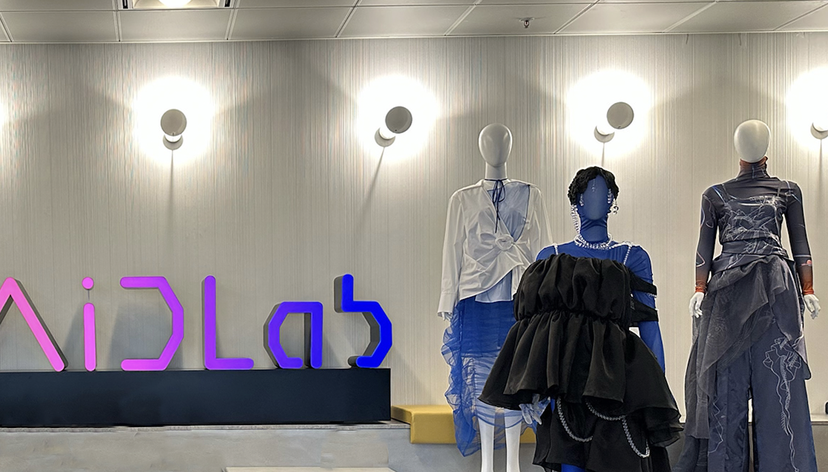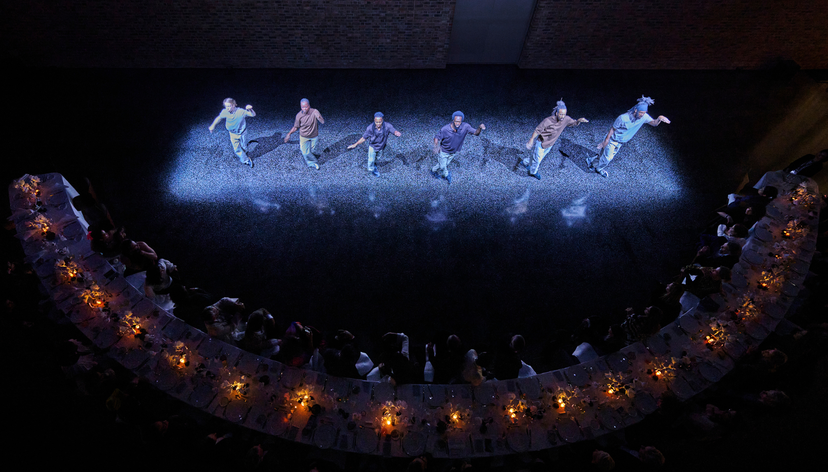
A transnational project exploring how training and education in art and culture can reflect on, and respond to, conflict through audience participation and co-production.
At a glance
- The consortium consists of eight institutional partners from Denmark, France, Germany, Lithuania, Portugal, Spain, Sweden and the UK.
- In 2018 the RCA and Delfina hosted Noor Abuarafeh as the UK’s 4Cs Artist-in-Residence.
- In 2019 the RCA, The Showroom Gallery and Tate Britain partnered to convene a 4Cs creative workshop: This is No longer That Place: a public discussion.
- In 2021 the RCA, partnering with Gasworks Gallery and Spike Island, will present the UK 4Cs exhibition of the work of Brooklyn-based filmmakers Adam Shingwak Khalil and Bayley Sweitzer.
- In 2021 the RCA will host a UK film screening curated by the 4C’s film series curator, Azar Mahmoudian.
- Published outputs include Noor Abuarafeh’s Art Book ‘Rumours Began Some Time Ago’ and the Workshop Handbook ‘This is No Longer That Place’, authored by Michaela Crimmin and Dr Peter Oakley.
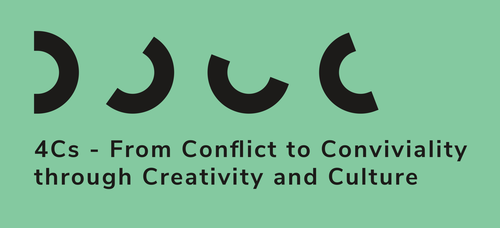

Key details
Gallery
More information
Partners

The RCA is collaborating with seven diverse academic and creative institutions across Europe: Universidade Católica Portuguesa, Lisbon (coordinator); Tensta Konsthall, Stockholm; SAVVY Contemporary, Berlin; Fundació Antoni Tàpies, Barcelona; Museet for Samtidskunst, Roskilde; Ecole Nationale Supérieure des Arts Décoratifs, Paris; and Nida Art Colony, Vilnius Academy of Arts.
The challenge
The European Commission has acknowledged that tackling the challenges of the refugee crisis, and threats to security and freedom of expression, is a European obligation that requires a comprehensive strategy and a determined effort. It has emphasised the role of culture and the arts in contributing towards building a more cohesive and open society.
4Cs’ core objectives are to:
- promote an innovative reflection on the role of Europe in emerging forms of conflict
- build a greater understanding of the value of involving culture and art organisations in the mediation of situations involving conflict
- foster the exchange of knowledge and locating possible solutions in conflict-related research and activities
- stimulate capacity building through career and professional development of skills, competences, know-how and good practices to prepare a new generation of cultural agents able to respond to the challenges of 21st century conflicts.
Our approach
The RCA’s focus is on artists who are concerned with a colonial past which continues to be misunderstood and often misrepresented.
In response to the result of the UK referendum over EU membership, the research is positioned in direct relation to the current febrile divisions over Brexit, rising populism and nationalism, an increasingly hostile immigration system, and the UK’s changing relationship with Europe and the shifting world order.
Activities
Studio Visits in Sweden and Lithuania (2018)

Michaela Crimmin, the UK Creative director for 4Cs, undertook two international studio visits. The first was to Tensta Konstall, northwest of Stockholm city centre. The second was to Nida Art Colony, located on the Curonian spit near the Kaliningrad border. During the visits Michaela met with artists working in Sweden or Lithuania whose interests related to the focus of the 4Cs project.
Staff Swop (2019)

The 4Cs programme includes ‘staff swops’, undertaken to facilitate transfer of skills and good practice in cultural management. Michaela Crimmin visited Fundació Antoni Tàpies in Barcelona during Errata, an exhibition and series of related cultural events co-curated by Ariella Aïsha Azoulay and Carles Guerra.
Artist Residency: Noor Abuarafeh (2018)

After an extensive selection process, advised by international artists and curators, Noor Abuarafeh was selected as the UK artist-in-residence and invited to London. A Palestinian artist living and working in Jerusalem, Abuarafeh questions how history is constructed, visualised, perceived, and understood; how all these elements are related to fact and fiction, including imagining the past when there are gaps in documentation. Her research in London focused on the whereabouts of works by Palestinian artists from exhibitions that took place in Europe in the last century, and particularly from an exhibition in 1919 held at the Imperial War Museum. Lost, overlooked, displaced, or hidden, these artworks and the process of finding them have acted as a metaphor for displaced and marginalised people, a constructive reclamation of history as an act of reconciliation, contextualising the present in the past. The Delfina Foundation hosted Noor’s residency. Hilary Roberts, Research Curator of Photography at the Imperial War Museums, and Jack Persekian, director of the Al-Ma’mal Foundation for Contemporary Art in Jerusalem, both supported the residency.
One outcome of the residency was an art book entitled ‘Rumours Began Some Time Ago’, a response to the question ‘how can we document what is absent?’ The book includes an illustrated account of British involvement during the Mandate where civil servants sought to create a museum dedicated to Palestinian art and crafts in Jerusalem. It focuses particularly on the role of the ‘Pro Jerusalem Society’, established in 1917 by Sir Ronald Storrs, the then Military Governor of Jerusalem.
4Cs Workshop: This is No Longer That Place: a public discussion (5, 7 and 9 March 2019)

The workshop took place in the same month that the UK was due to leave the EU on 31 March 2019. It began with a screening of French-Moroccan artist Bouchra Khalili’s ‘The Tempest Society’, and the launch of her book by the same name, in a partnership between the RCA, The Showroom and Book Works. ‘The Tempest Society’ revisits Al Assifa, a politicised theatre group born out of the struggles of the Mouvement des Travailleurs Arabes (MTA), the situation of Palestine, anti-colonialism, and workers’ and immigrant labour rights.
Curated by Elvira Dyangani Ose (The Showroom), with Michaela Crimmin (RCA), and Richard Martin and Luisa Ulyett (Tate), the following two sessions, a one-day symposium held at The Showroom, and a concluding evening event held at Tate, were titled: 'This is No Longer that Place: a public discussion". Speakers and audience were asked to address the extent to which art can affect change when addressing issues of migration, displacement, and access. What is the capacity of artists and arts institutions to intervene in the current geopolitical climate? Gurminder Bhambra, professor of postcolonial and decolonial studies at the University of Sussex, gave the opening keynote addressing the inter-related subjects of national sovereignty, immigration laws, empire, racism, and dispossession. The artists and curators who followed included Kathrin Böhm, who talked about the artist-run pro-Remain campaign ‘Keep it complex – make it clear!’; Austrian artist Oliver Ressler who described projects which challenge racism and power structures; and Peruvian, Barcelona-based artist Daniela Ortiz, who took issue with the violence of migration and integration politics.
As part of the 4Cs project, the eight partners are each producing handbooks describing and reflecting on the delivery of a key 4Cs event they are managing. These will exist as stand-alone texts and collated into a joint 4Cs volume. The RCA team decided to focus on the Workshop for their contribution. The illustrated Workshop Handbook, This is No Longer That Place, written by Michaela Crimmin and Peter Oakley, was published online in July 2020.
CONVIVIAL CULTURES / XI Lisbon Summer School for the Study of Culture - Ben Cranfield, Laura Vallés Vílchez, Dr Peter Oakley

In 2021 Laura Vallés Vílchez became Creative Director for the UK's contribution to 4Cs: From Conflict to Conviviality through Creativity and Culture. Dr Peter Oakley and Ben Cranfield, along with Laura, contributed to the XI Lisbon Summer School for the Study of Culture with a masterclass and a workshop titled ‘Conditions of Entry’.
‘Conditions of Entry’ was an opportunity to discuss and raise questions about thresholds, borders, mobility, and access from the perspective of art and/or curating. The seeming contradictions of our contemporary moment — that more and more people theoretically have access to forms of transnational exchange through digital technologies and travel opportunities and yet at the same time physical and social borders are being erected and policed with increasing ferocity and violence — makes the accessibility of cultural spaces that declare themselves ‘open’ to a wide and diverse ‘public’ even more questionable and vital. The events surrounding the pandemic have added further layers of complexity to this issue and constructed new — or simply highlighted pre-existing — fundamental structural challenges to the ideals of free mobility and social inclusion.
Following an introductory talk, students were invited to share and discuss an object (singular or plural), institution or event/moment that raises questions about thresholds, borders, mobility and access. The session concluded by a group plenary discussion on the issues that were raised. The aim was to think beyond the parameters of the work of art to the conditions, situations and juxtapositions that frame viewers’ encounters with a work, or the formation of a moment of cultural meaning, and consider what are the conditions in which people, objects and ideas are able to enter that frame. The objective was to identify relevant key artists and thinkers, and reflect on a range of issues, possibilities, and questions that their practice or writing raises.
Nosferasta Exhibition at Gasworks (October – December 2021), touring to Spike Island, Bristol (2022)

Taking place at Gasworks between 6 October and 19 December 2021, and then touring to Spike Island, Bristol, Nosferasta is the first UK solo exhibition by Brooklyn-based filmmakers Adam Shingwak Khalil and Bayley Sweitzer. Acclaimed for their science-fiction political thrillers set against a backdrop of racialised police brutality and mass surveillance, their films combine camcorder footage and pro-shot video, digital animation and drone imaging. Multiple sources and formats are woven together into a kaleidoscopic experience that subverts traditional forms of storytelling by engaging with indigenous worldviews, queer energies and minoritarian politics. Curated by Sabel Gabaldon, Gasworks, in association with Creative Director Laura Vallés Vílchez, RCA.
Nosferasta is the first iteration of a Rastafarian vampire film starring and co-written by Oba, a Trinidadian artist and musician based in Brooklyn. Spanning 500 years of colonial destruction, human trafficking and blood sucking, the film reimagines Oba’s origin story. In the late 15th century, Oba is shipped as cargo from West Africa to the Caribbean, where he is bitten and converted by the vampire Christopher Columbus, ensuring his undying allegiance to the colonial project.
Oba claims he has three birthdays: the day he was born, the day he was bitten, and the day he killed his master. There is a dark irony in the fact that Columbus is both a despotic father figure to Oba and his partner in crime. Engaged in unholy union, this unlikely duo spread vampirism across the Western Hemisphere, pulling the strings of ‘New World’ geopolitics until Oba’s encounter with Rastafarianism, an anticolonial religion, enables him to break Columbus’s spell.
In the film, period scenes are in tense dialogue with unscripted vignettes of Oba’s post-vampiric existence in present-day Brooklyn. These portray Oba’s real-life struggles with the colonial bureaucracy he once helped to build, including his quest for U.S. citizenship and literacy. Combining film forms and jumping across multiple timelines, locations and perspectives, Nosferasta tells the story of an ageing Rastafarian vampire at the decline of colonial empires. It examines the guilt of being complicit in imperial conquest, while acknowledging the extreme difficulty of unlearning centuries of vampiric conditioning. Ultimately, the film tackles an uncomfortable question: How can you decolonise yourself, if it’s in your blood?
A free catalogue is distributed during the exhibition.
Adam Shingwak Khalil is an artist and filmmaker from the Ojibway tribe born in Sault Ste. Marie, Michigan; and Bayley Sweitzer is a filmmaker from Southern Vermont. Recent screenings include the Museum of Modern Art, Anthology Film Archives, e-flux (New York); Walker Arts Center (Minneapolis); LACMA (Los Angeles) and Tate Modern (London). Their works have also featured at the Whitney Biennial, Toronto Biennial and Sundance Film Festival.
Nosferasta catalogue: ‘A Story Within a Story — A World of Many Worlds’ An Afterword by Laura Vallés Vílchez

Nosferasta is a story within a story—it evokes a world of many worlds in which friendship and collaboration challenge ideas of authorship; and, if we think with Donna Haraway, it also muddles through story telling for earthly survival. Along with Oba, with whom the filmmakers have created long-term affective, yet also critical bonds, Adam Khalil and Bayley Sweitzer have developed a speculative narrative: a story that re-imagines Oba’s origin in early colonial times, when he is shipped as cargo across the Middle Passage and enticed by the vampire Christopher Columbus.
Aware of the recent debates around the Anthropocene and the limits and entanglements of nature, Nosferasta interprets the present as a moment to speculatively re-enact the material-semiotic grammar of relations—in the sense of Édouard Glissant—among worldling worlds that weave together the fabric of the current historical moment. It invites the viewer to be attentive to histories that do not satisfy dominant political demands, in order to evidence a history of conflict. Exploring how culture can be a powerful resource to address ways of staying with the trouble or, in other words, dealing with conflictual phenomena, has been one of the main aspirations of 4Cs: From Conflict to Conviviality through Creativity and Culture, a European Cooperation project co-funded by the Creative Europe Programme of the European Union (2017-2021).
In this regard, Nosferasta is commissioned by Gasworks, London and Spike Island, Bristol, as part of this European Cooperation project, co-funded by Creative Europe and the Royal College of Art. Ultimately, the 4Cs project intends to develop collaborative tools to understand how training and education in art and culture can also envision creative accounts while contributing to audience development through co-production and participation. All in all, this publication is another manifestation of the intercultural dialogue and the importance of public arts and cultural institutions, such as the Royal College of Art, in fostering communities of affect and togetherness.
Sensible Grounds Film Programme: “That’s How We Undo It” with Ayreen Anastas & Rene Gabri at LUX (2021)

Azar Mahmoudian is guest curating film screenings at LUX, in association with Creative Director Laura Vallés Vílchez. A series of cinema-gestures by Ayreen Anastas and Rene Gabri as part of the multi-chapter program of moving image practices, Sensible Grounds.
Ayreen Anastas and Rene Gabri introduce the program in their own words:
‘In the context of the pandemic, the world feels like a very different place. And the George Floyd Uprisings have been one of the flares marking a profound shift in the planetary imaginary of what all needs to be undone, unworked, abolished, commoned, decolonized, destituted. At this same time, it would seem that entire machineries and devices are in place to destroy or preempt the shifting of sensibilities and senses of living which the virus has prompted or opened time to consider.
The infrastructures for art, cultural production, and learning have played and will play a central role in either facilitating or resisting the attempts to normalize what more and more resembles the continuous catastrophe that Walter Benjamin wrote about a century ago. If the virus points to the intensification of forces which enclose, surround, suffocate, and suppress life in all its forms and difference; then the question remains from which domains we can see and trace the limits and potencies of insurgent forms and potentials for living, inhabiting, affirming, reclaiming our worlds.
The films, or cinema-gestures we are sharing have been un/made just prior to the visitation of the virus and immediately after its wake. Moreover, relying on encounters recorded in the year 2007, each of the films grapples with the ghostly presences of pasts, histories of colonisation, genocide, forced oblivion and premonitions of futures foreclosed.
They grapple with the difficulties to find a language and the forms adequate to think through, endure, confront the multiplicities of violence communities are exposed to today., And concurrently, they trace the efforts to reimagine on what terms conviviality can be re-membered and reanimated. In each case, the films are themselves calls for and attempts to put into play different uses for art, its forms, as well as its spaces of attendance and care.
You can read a conversation between the artists about this project here (attach Blog A Conversation as a PDF).
The screening programme will be as follows:
Thursday 28th October (Part 1 Screening at 12pm and Part 2 screening at 2.30pm)
An Untimely Film for Every One and No One First and Second Part (2018)
Friday 29th October (Screening twice at 12pm and 2.30pm)
Born of the * * * On Zarathustra’s Going Under from Cairo to Oran Third Part (2020)
Saturday 30th October (Screening twice at 12pm and 2.30pm)
Black Bach Artsakh (2021)
Outputs
Online Platform (2017-21)

All partners are contributing to the 4Cs website hosted by FCH|UCP, as well as posts via Instagram and Facebook.
4Cs 2017 conference presentation

Michaela Crimmin and Nina Power presented papers at Conviviality and the Institutional, a two day 4Cs conference held at the Museum of Art, Architecture and Technology and at Universidade Católica Portuguesa in Lisbon, 4-5 December 2017.
4Cs UK Artist’s Residency

- 2-minute introduction to the Residency
- Residency video
- Art book, Noor Abuarafeh, ‘Rumours Began Some Time Ago’, 2018
This Is No Longer That Place: A Public Discussion
Held at The Showroom and Tate Britain on 7 and 8 March 2019.
- Edited extracts from the events
- Professor Gurminder Bhambra
- Daniela Ortiz
- Natasha Marie Llorens
- Kathrin Böhm
- Oliver Ressler
This Is No Longer That Place, Workshop Handbook

A Handbook describing the development and delivery of the 4Cs Workshop held at The Showroom and Tate Britain, with reflections on developing and managing the event, authored by Michaela Crimmin and Dr Peter Oakley.
Ask a question
Get in touch to find out about School of Arts & Humanities research projects.
SoAH@rca.ac.uk
